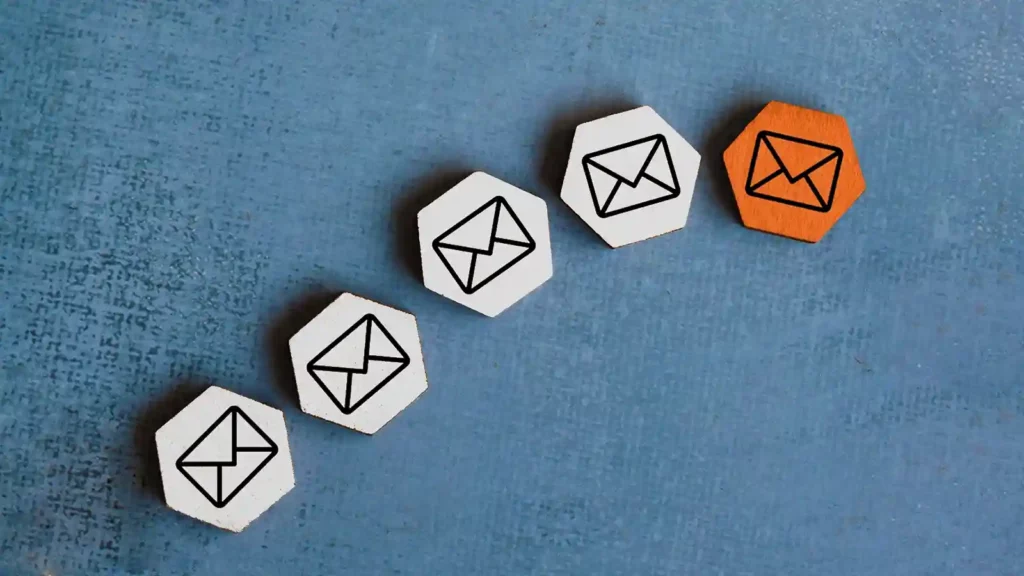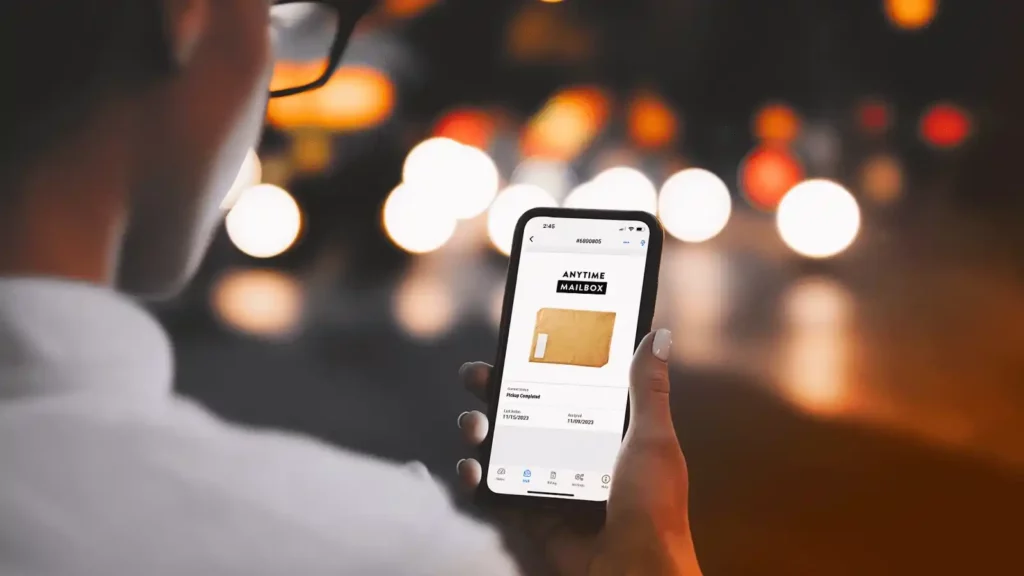Moving to a new home can be an overwhelming experience, with an endless list of tasks to tackle. From the daunting packing process to ensuring your new abode is pristine, the to-do list can seem never-ending.
Amidst all the chaos, one crucial task that often slips the mind is forwarding your mail to the new address. Fret not, as we’ve got you covered with a comprehensive step-by-step guide on how to efficiently forward your mail to your new home.
In this article, we’ll walk you through the process, ensuring a seamless transition of your important mail items to your new address. So, sit back, relax, and let’s get your mail forwarding process underway with ease.
What Is Mail Forwarding?

Mail forwarding is a vital service that facilitates the seamless transfer of mail from one address to another. During the process of relocating, having your mail forwarded at an early stage is essential to ensure that all important correspondence reaches your new residence promptly.
Moreover, this practice prevents the inconvenience of mail accumulating outside your old door or landing in the hands of new occupants.
Now, you might wonder why snail mail is still a concern in this digital age:
- While technology has indeed transformed many aspects of communication, there are still critical items that rely solely on postal mail delivery:
- These include crucial communications from institutions like the IRS and Social Security, passport and driver’s license renewals, health insurance cancellation notices, as well as new or replacement credit and debit cards.
- Failing to manage these essential mail items can lead to serious consequences and disruptions in your daily life.
- To safeguard against any potential mishaps and to ensure a smooth transition during your move, it’s imperative to set up a reliable mail transfer service through the United States Postal Service (USPS) change of address process.
- By utilizing the USPS change of address service, your mail will automatically be forwarded to your new address, and the USPS will also inform certain entities about the mailing address change on your behalf.
- Taking advantage of mail forwarding not only guarantees the timely receipt of crucial mail but also gives you peace of mind during the chaotic moving process. So, make sure to prioritize this important step, and let mail forwarding be the solution that keeps you connected to vital communications, no matter where life takes you.
- With this essential service in place, you can confidently embark on your new journey to your forwarding address, knowing that your mail will be right there with you.
5 Steps to Forwarding Mail to Your New Address

Moving to a new location, whether it’s within the United States or abroad, requires careful planning to ensure you don’t miss any important mail. Staying connected to essential communications is vital, no matter the distance or duration of your move.
To help you navigate this process smoothly, we’ve put together an easy-to-follow guide on how to forward your mail to your new address seamlessly.
Mail Forwarding Step 1: Choose the Ideal Mail Forwarding Option
- The United States Postal Service (USPS) offers three convenient mail forwarding options for its customers. Depending on your specific needs, you can opt for:
- Temporary Change of Address:
- This option forwards primarily First-Class Mail and Periodicals piece-by-piece for a specified mail forwarding period, making it ideal for short-term relocations.
- Permanent Change of Address:
- For a more long-term solution, this option allows piece-by-piece forwarding of primarily First-Class Mail for 12 months and Periodicals for 60 days.
- Premium Forwarding Service Residential:
- This service ensures all your mail is bundled into a single weekly shipment via Priority Mail, making it perfect for temporary arrangements. Note that this option comes with a fee and can be chosen in addition to the free temporary or permanent Change of Address (COA) option.
- Temporary Change of Address:
Mail Forwarding Step 2: Gather the Necessary Identification Documents
- To complete the mail forwarding process, the USPS requires two forms of identification.
- You have the flexibility of presenting either a primary ID along with a secondary ID or two forms of primary IDs.
- The primary ID must have a clear picture, and it can include items such as a government-issued ID (e.g., driver’s license or state ID), passport, university ID, or corporate ID.
- USPS Mail Forwarding Primary ID Requirement Examples are:
- Government-issued IDs (driver’s license, state ID, Armed Forces card, certificate of citizenship, or proof of permanent residency)
- Passport
- University ID
- Corporate ID
- USPS Mail Forwarding Primary ID Requirement Examples are:
- For the secondary ID, a non-photo identification like a lease, mortgage, or voter registration card will suffice.
- USPS Mail Forwarding Secondary ID Requirement Examples are:
- A lease, mortgage, or deed of trust
- Voter or vehicle registration card
- Home or vehicle insurance policy
- Form I-94, Arrival and Departure Record
- USPS Mail Forwarding Secondary ID Requirement Examples are:
Mail Forwarding Step 3: Choose Your Preferred Method
- You can conveniently initiate the mail forwarding process either by visiting the local post office in person or by utilizing the USPS website.
- If you opt for online processing, the USPS charges a nominal $1.10 identity validation fee.
- If you prefer a face-to-face approach at the post office, the service is entirely free.
- CAUTION: Some third-party sites will ask you to pay a fee of up to $40 for the mail forwarding process. Make sure that you’re using USPS.com to avoid incurring any unnecessary charges.
Mail Forwarding Step 4: Complete PS Form 3575 and Await the Move Validation
- Fill out and submit PS Form 3575 to place your change of address order for mail forwarding. During this step, you can select the start date for the forwarding service, which can be up to 30 days in the past or up to 90 days in the future.
- Following your submission, USPS will mail a Move Validation Letter (MVL) to your old address, confirming the move.
- Additionally, you’ll receive a Customer Notification Letter at your new address five days before the COA start date.
- Mail delivery to your old address will cease, and within 7-10 postal business days from the COA start date, your mail will begin arriving at your new address.
Mail Forwarding Step 5: Stay Alert and Informed
- Throughout the forwarding process, it’s essential to keep a close eye on your mail to ensure all your important correspondence is reaching your new location correctly.
- By following these straightforward steps, you can effortlessly manage your mail forwarding needs and experience a seamless transition during your move.
- By prioritizing the forwarding of your mail, you can enjoy a stress-free moving experience, knowing that your essential communications will continue to find their way to your doorstep, wherever you are.
Take the initiative to set up mail forwarding and embark on your new adventure with confidence!
A Convenient and Long-Term Solution: A Virtual Mailbox

A Better Alternative for Extended and Convenient Mail Forwarding
While the USPS process for mail forwarding is certainly an option, a more efficient, flexible, and long-term solution exists — the virtual mailbox.
Embracing the modern marvels of technology, a virtual mailbox offers a faster and easier way to handle your mail needs with unparalleled convenience.
What is A Virtual Mailbox?
- A virtual mailbox, like the one provided by Anytime Mailbox, revolutionizes the way you manage your mail. It empowers you to change your address and forward your mail swiftly, all from the comfort of your device. And it doesn’t stop there. A virtual mailbox extends its capabilities well beyond mere mail forwarding.
The Power and Endless Possibilities of A Virtual Mailbox
With a virtual mailbox, you gain access to a myriad of convenient features, ensuring your mail management is smooth and efficient. Here’s what you can do with Anytime Mailbox:
- Open and Scan Mail Items:
- Gone are the days of waiting anxiously for physical mail to arrive.
- With a virtual mailbox, you can request to have your mail items opened and scanned, and the digital copies will be made available to you instantaneously.
- Stay on top of your mail around the clock, when you want, wherever you are in the world.
- Forward Mail or Packages:
- If you want to know how to to forward mail to someone, a virtual mailbox offers more flexible options. If you need a physical copy of your mail or packages delivered to another location, simply make the request, and Anytime Mailbox will handle the rest.
- Shred, Store, or Recycle Mail:
- Decluttering your physical space is hassle-free with a virtual mailbox.
- Choose to shred, store, or recycle mail items as needed, eliminating the burden of unnecessary paperwork.
- Schedule for Pickup:
- For added convenience, you can schedule a pickup for your mail items. This option comes in handy when you’re in town and want to personally retrieve essential documents or packages.
The Ease of Setting Up Your Virtual Mailbox
- Getting started with a virtual mailbox is surprisingly simple. Just go ahead and choose a preferred US location from the extensive list provided by Anytime Mailbox to set up your digital address.
- Embrace the wonders of modern technology as you say goodbye to mail-related stress and embrace the seamless mail management experience offered by a virtual mailbox.
Choose Convenience and Modern Tech: Set Up Your Virtual Mailbox Today
- Ditch the traditional approach and embrace the future of mail management with a virtual mailbox from Anytime Mailbox.
- Take control of your mail from anywhere in the world, all at your fingertips through your mobile device. Experience the freedom, flexibility, and efficiency that comes with this advanced mail solution.
- Set up your virtual mailbox in just a few simple steps and experience a hassle-free mail management experience like you can’t even imagine.
Frequently Asked Questions (FAQs):
How do I forward my mail to a new address with the USPS?
- To forward your mail with the USPS, you can visit your local post office in person or complete the process online through the USPS website. You’ll need to fill out PS Form 3575 to initiate the change of address request.
What is the process of changing my address and forwarding mail?
- The process involves completing the USPS change of address form (PS Form 3575) either in person or online. Once submitted, your mail will be forwarded from your old address to your new address for the specified duration.
Can I forward my mail temporarily for a specific period?
- Yes, USPS offers a temporary change of address option which allows you to forward your mail for a specified period, typically up to 6 months.
Is there a fee associated with forwarding mail to a new address?
- The USPS charges a nominal identity validation fee of $1.10 for online processing. However, if you choose to handle it in person at the post office, the service is free.
What types of mail can be forwarded to a new address?
- Most types of mail, including First-Class Mail, Periodicals, and packages can be forwarded to a new address through the USPS mail forwarding service.
Can I forward my mail internationally if I’m moving abroad?
- Yes, USPS offers international mail forwarding services for those relocating abroad. You can forward your mail to an international address.
How long does it take for my mail to be forwarded to the new address?
- Mail forwarding typically takes 7-10 postal business days to start after the Change of Address (COA) request is processed.
Can I forward packages and parcels along with regular mail?
- Yes, you can forward packages and parcels along with your regular mail to the new address.
What identification documents do I need to forward my mail?
- USPS requires two forms of identification, one of which should have a clear picture, such as a government-issued ID or a passport.
Is it possible to forward mail from a previous address to multiple new addresses?
- No, USPS mail forwarding is typically for one new address only. If you have multiple recipients at different addresses, separate forwarding requests will be necessary.
What should I do if I receive someone else’s mail at my new address?
- If you receive mail intended for someone else, write “Return to Sender” on the envelope and put it back in the mailbox. Alternatively, you can hand it back to the postal carrier or take it to the local post office.
Can I still receive mail at my old address after I’ve set up mail forwarding?
- USPS will stop delivering mail to your old address on the COA start date. However, mail sent to your old address may still arrive at your new address for a short period during the transition.
What happens if there are important documents or packages that I don’t receive after mail forwarding?
- In rare cases, some mail items may not be forwarded due to various reasons. If you experience any issues, contact your local post office for assistance.
Can I cancel or modify my mail forwarding request?
- Yes, you can cancel or modify your mail forwarding request anytime by contacting your local post office or through the USPS website.
Is there a difference between temporary and permanent mail forwarding?
- Temporary mail forwarding is for a specific period, while permanent mail forwarding lasts for a more extended period, typically 12 months for First-Class Mail and 60 days for Periodicals.
How do I update my address with other organizations, banks, or businesses during the forwarding process?
- You should inform individual organizations, banks, and businesses of your new address separately, as USPS mail forwarding only applies to mail sent through the postal service.
Can I track my forwarded mail to know when it will arrive at my new address?
- USPS does not offer tracking for regular forwarded mail. However, you can opt for additional services like Priority Mail or Express Mail for tracking.
Does mail forwarding apply to all types of mail, including junk mail and promotional materials?
- Mail forwarding applies to most types of mail, including junk mail and promotional materials. However, you can opt to manage or discard such items through your virtual mailbox or directly at your new address.
Can I forward mail on behalf of someone else, such as a family member or a friend?
- Yes, you can forward mail on behalf of someone else with proper authorization and documentation.
Are there any limitations or restrictions on forwarding certain types of mail, like government documents or official letters?
- Some sensitive or classified documents may have restrictions on forwarding. It’s essential to check with the respective agencies or organizations for specific guidelines regarding mail forwarding.



